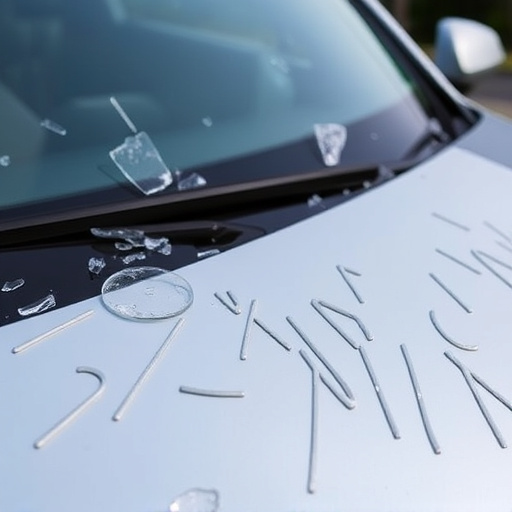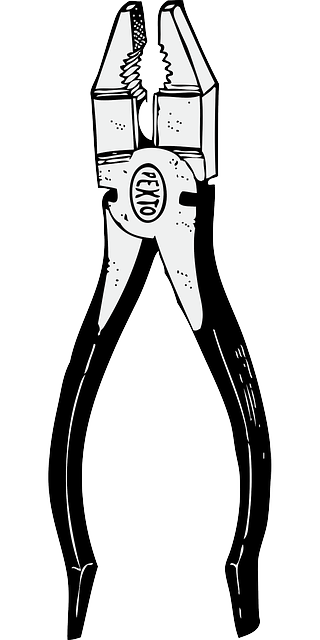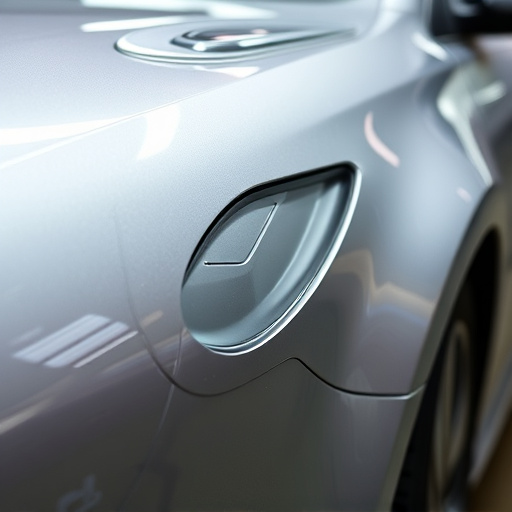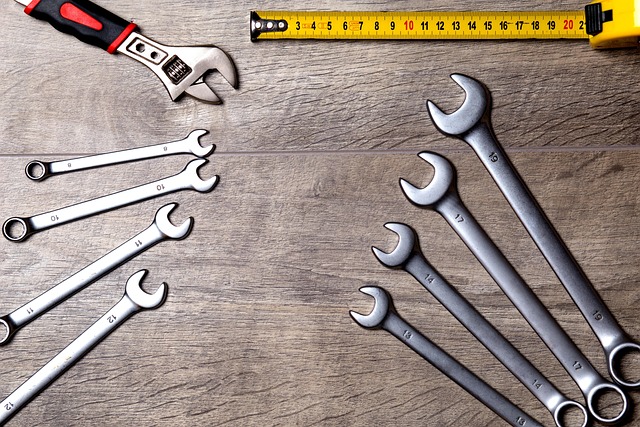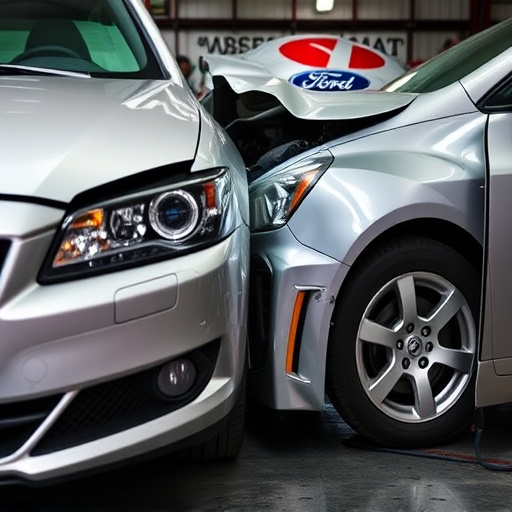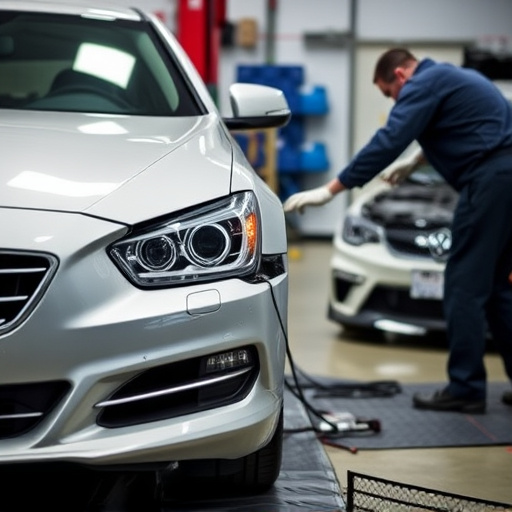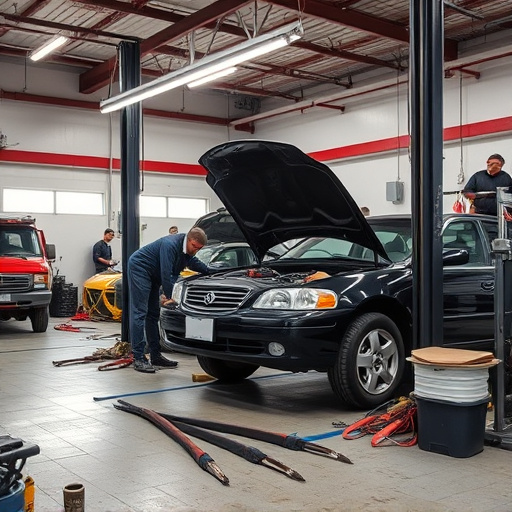The implementation of glass replacement certification has dramatically transformed auto repair services, prioritizing safety and quality. Certified technicians ensure meticulous repairs using superior materials, enhancing customer satisfaction and business reviews. This shift has fostered a culture of excellence, boosting road safety, client retention, and innovation in collision and fleet repair services.
Glass replacement certification has evolved dramatically, reshaping the industry landscape. This transformative process, driven by heightened safety standards and quality control, ensures competent professionals install and maintain glass structures. By mandating specific training and knowledge, it boosts industry safety and reduces risks. Businesses have adapted by investing in certified staff, enhancing customer confidence and fostering growth opportunities. The adoption of these standards has become a cornerstone for modern glass replacement practices.
- Evolution of Glass Replacement Standards
- Impact on Industry Safety and Quality
- Business Adaptation and Growth Opportunities
Evolution of Glass Replacement Standards

The evolution of glass replacement standards has been a game-changer for businesses across various industries, especially in the automotive sector. In the past, replacing auto glass was often an afterthought, with little emphasis on quality and safety. However, the introduction of comprehensive glass replacement certification programs has transformed this aspect of auto repair near me. These certifications have set new benchmarks, ensuring that repairs are carried out by trained professionals using top-quality materials.
This shift towards standardization has not only raised the bar for bumper repair and auto painting services but also empowered customers to make informed choices. With certified technicians, businesses can offer more reliable and durable solutions, enhancing customer satisfaction. Moreover, these certifications have encouraged a culture of excellence, where every glass replacement job is treated with meticulous care, ensuring a seamless fit and structural integrity, regardless of whether it’s a simple chip repair or a complete auto glass replacement.
Impact on Industry Safety and Quality

The introduction of glass replacement certification has been a game-changer for the industry, significantly enhancing safety and quality standards across the board. This certification ensures that professionals carrying out glass replacements have undergone rigorous training and possess the necessary skills to handle complex tasks involving automotive glass. By mandating such qualifications, businesses in collision repair services and fleet repair services can rest assured that their technicians are equipped with the knowledge to deliver precise, safe, and reliable results.
This shift has not only improved road safety but also instilled a sense of confidence among clients seeking automotive body work. With certified professionals taking the lead, the risk of errors or subpar workmanship is minimized, ensuring customer satisfaction and peace of mind. As a result, businesses have seen an increase in client retention and positive reviews, further solidifying their market position.
Business Adaptation and Growth Opportunities
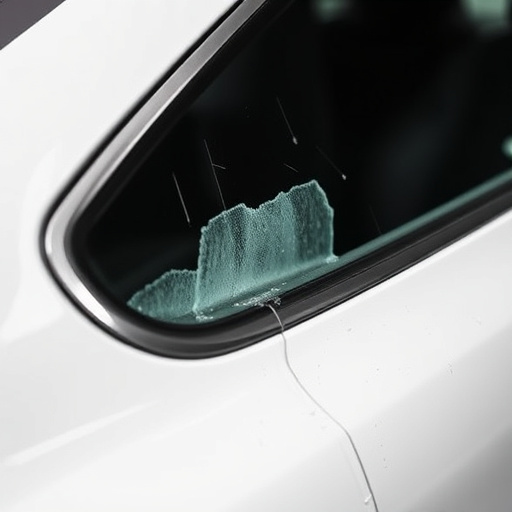
The advent of glass replacement certification has been a game-changer for businesses operating within the auto industry, specifically in sectors like fender repair and vehicle paint repair. This certification has prompted a significant shift in how these enterprises adapt and grow, opening up new avenues that were previously inaccessible. With a focus on skill enhancement and quality assurance, professionals equipped with this training are now better prepared to handle complex auto body repair tasks, including glass replacement and restoration.
This change has led to improved customer satisfaction as businesses can offer faster turnaround times and higher-quality services. Moreover, the certification encourages innovation in processes, pushing auto body repair shops towards adopting more advanced technologies for both fender repair and vehicle paint repair. This not only enhances efficiency but also allows for a broader range of services, fostering business growth and expansion into new markets.
Glass replacement certification has fundamentally transformed the industry, fostering safer working practices and higher quality standards. By implementing these certifications, businesses have not only enhanced their operational efficiency but also opened doors to new growth opportunities. As the demand for skilled glass professionals continues to rise, staying certified remains essential for competitive edge in this dynamic sector.

